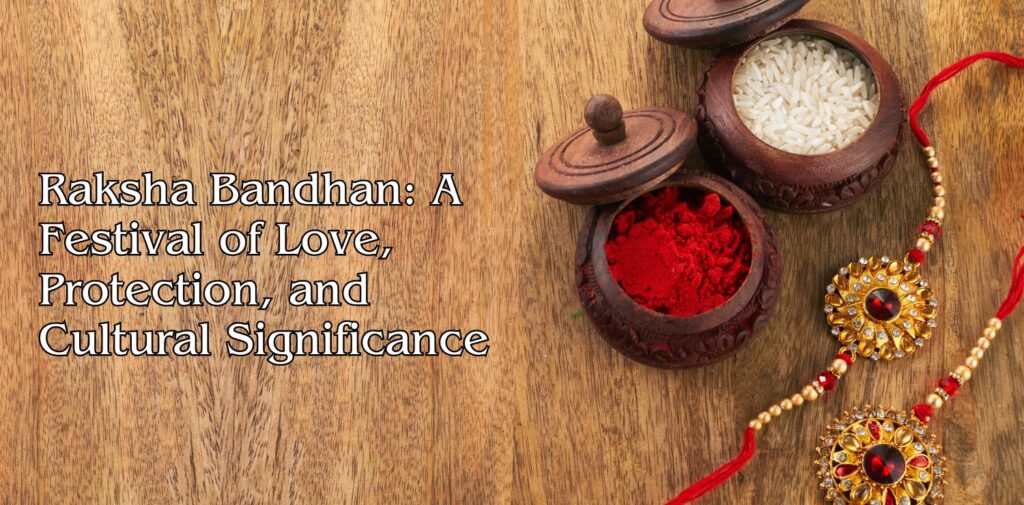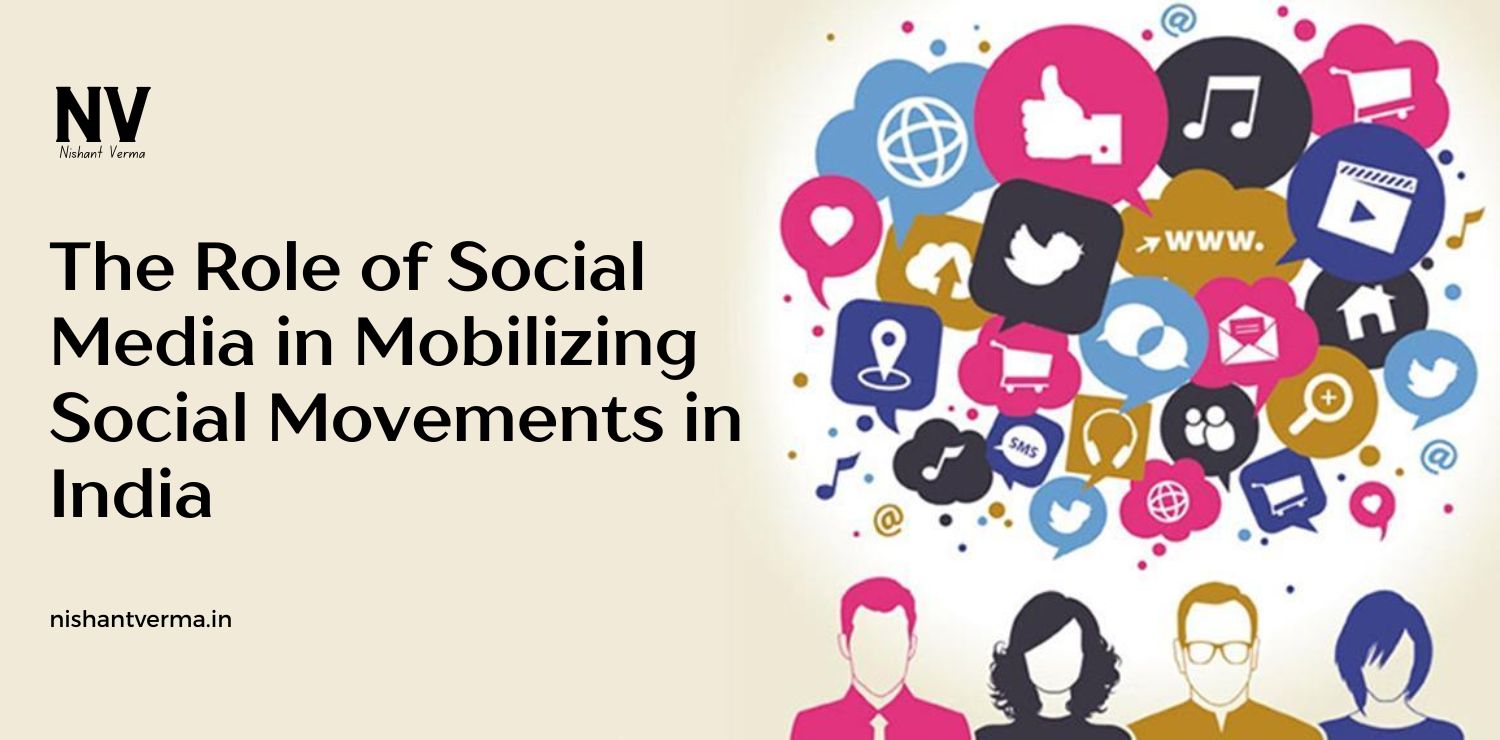Raksha Bandhan, or “Rakhi,” is a significant Hindu festival that celebrates the bond of love, protection and commitment between brothers and sisters. Derived from Sanskrit, the term “Raksha” means protection, while “Bandhan” signifies a bond, encapsulating the core essence of the festival as a commitment to safeguard and support one another. Celebrated predominantly in India, Nepal, and parts of the diaspora, Raksha Bandhan has deep cultural, historical, and emotional resonance. Let’s explore the cultural significance, traditions, and beautiful facts surrounding this cherished festival.
Cultural Significance of Raksha Bandhan
Raksha Bandhan is more than a simple sibling ritual; it carries deep symbolic meaning that transcends familial relationships. Traditionally, the sister ties a sacred thread, called a “rakhi,” around her brother’s wrist. This thread represents the sister’s prayers for her brother’s well-being, health, and prosperity, while the brother promises to protect his sister throughout life. The practice strengthens familial ties, but also promotes values such as duty, loyalty, and mutual respect.
The celebration of Raksha Bandhan is deeply rooted in Hindu mythology and has significant ties to ancient stories and legends. One of the most famous mythological tales associated with Raksha Bandhan is that of Lord Krishna and Draupadi. According to the Mahabharata, when Krishna hurt his finger, Draupadi, the wife of the Pandavas, tore a piece of her sari and tied it around his wound to stop the bleeding. In return, Krishna vowed to protect Draupadi, a promise he kept when she was humiliated in the Kaurava court. This episode illustrates the unbreakable bond of protection and the spirit of sacrifice that defines Raksha Bandhan.
Another significant tale is that of Queen Karnavati and Emperor Humayun. When Karnavati, the widowed queen of Chittor, faced the threat of an invasion from Bahadur Shah, she sent a rakhi to the Mughal Emperor Humayun, seeking his protection. Touched by her gesture, Humayun honored the rakhi and immediately set out to protect her kingdom. Though he arrived too late to prevent the invasion, the story reflects how Raksha Bandhan transcended religious boundaries and was recognized as a bond of solidarity.
Beyond the mythology, the festival also reinforces traditional Indian values. In contemporary times, Raksha Bandhan is not limited to the bond between biological brothers and sisters. It symbolizes the nurturing of various forms of relationships, extending to cousins, friends, and even communities. Rakhi has become a symbol of unity and love, representing a shared commitment to care for and protect one another.
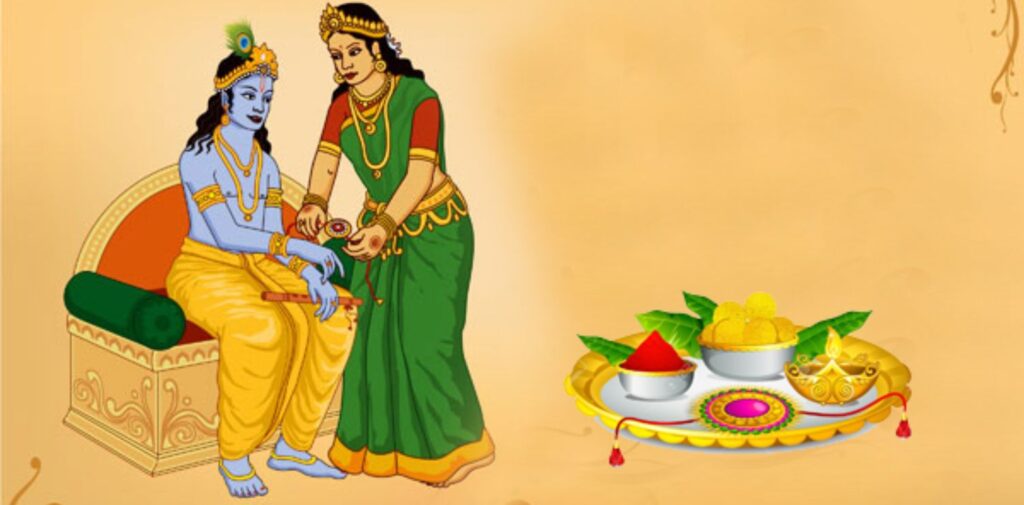
Raksha Bandhan as a Bond of Protection and Safety
At the heart of Raksha Bandhan is the concept of protection. The act of tying a rakhi is symbolic of the emotional and physical safety that siblings provide to one another. This idea of protection, however, has evolved to include broader interpretations over time.
Protection in Raksha Bandhan isn’t a one-way commitment where only the brother is responsible for the sister’s safety. It is a reciprocal relationship, where both siblings vow to support, guide, and safeguard each other. This mutual bond highlights the shifting dynamics in Indian society where women’s roles are increasingly seen as equal to men’s. Sisters, in their own ways, also become protectors and guides for their brothers.
In modern contexts, the notion of protection extends to societal and environmental concerns as well. Many people use the occasion to raise awareness about social issues like women’s rights, child safety, and environmental conservation. For instance, rakhi-making workshops are sometimes held to promote eco-friendly materials and practices. This demonstrates that Raksha Bandhan’s symbolism has adapted to address contemporary concerns, broadening the scope of protection beyond family to include the larger community and environment.
Moreover, Raksha Bandhan has become an occasion to spread messages of peace and harmony. In schools, children often tie rakhis to soldiers and police officers as a mark of respect and gratitude for their role in protecting the country. This act of solidarity acknowledges the role of security forces in safeguarding citizens and echoes the broader theme of Raksha Bandhan—protection, not just within families but across the nation.
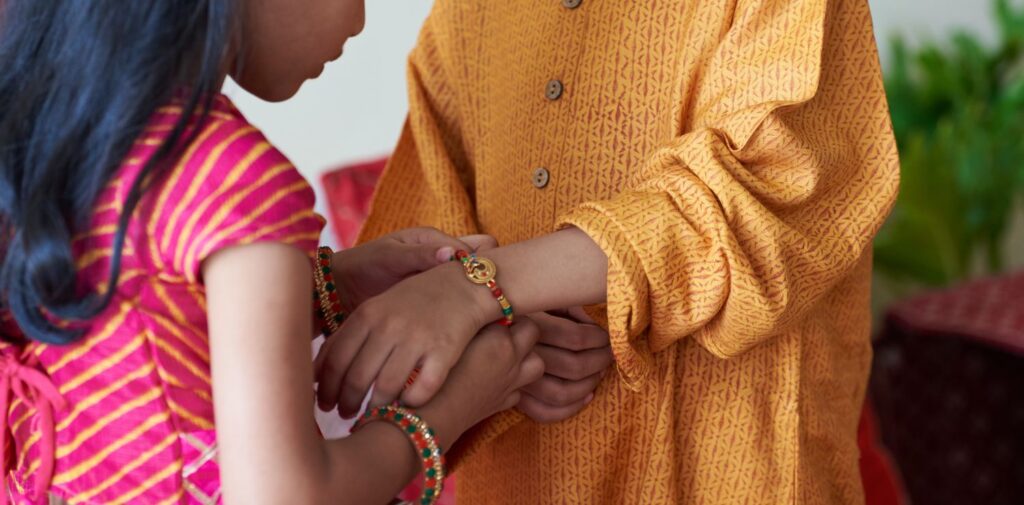
Beautiful Facts and Traditions of Raksha Bandhan
The customs and traditions associated with Raksha Bandhan vary across regions and communities, but certain key practices remain universal. The preparation for the festival begins days in advance, with markets flooded with colorful rakhis and gifts. Sisters carefully choose or craft rakhis, often customizing them to reflect their relationship with their brothers. Brothers, on the other hand, prepare to present gifts as a token of their appreciation and promise.
A traditional Raksha Bandhan ceremony typically starts with a prayer or puja, where the sister applies a “tilak” (a red mark) on her brother’s forehead, ties the rakhi around his wrist, and performs an aarti—a prayer ritual performed by circulating a lighted lamp. In return, the brother offers gifts, such as sweets, clothing, or money, and vows to protect his sister. This ritual is often accompanied by the exchange of sweets, reinforcing the sweetness of the bond.
The celebration varies greatly across India’s vast cultural landscape. In some parts of India, Raksha Bandhan coincides with the onset of the monsoon season and is celebrated with special regional customs. For example, in Maharashtra, Raksha Bandhan is observed alongside Narali Purnima, a festival where fishermen pray for a safe journey before setting out to sea. In the southern part of the country, particularly in Tamil Nadu and Kerala, the day is associated with Avani Avittam, a sacred thread-changing ceremony for Brahmins.
In Gujarat, the festival is associated with the legendary tale of King Bali and Goddess Lakshmi. According to Hindu mythology, King Bali had pledged to grant any wish that Lord Vishnu desired, and Vishnu asked Bali to allow him to live with him in his palace. Goddess Lakshmi, Vishnu’s wife, disguised herself as a Brahmin woman and tied a rakhi on Bali’s wrist, asking for her husband’s return as a gift. King Bali granted her wish, and this story highlights the festival’s connection to the theme of protection and loyalty.
Another beautiful aspect of Raksha Bandhan is how it transcends religious and cultural boundaries. In many parts of India, especially in urban areas, the festival is celebrated not just by Hindus but by people of other faiths as well. Sikhs, Jains, and even some Muslims observe the festival as a way to honor their relationships with family and friends. This inclusivity reflects the universal appeal of Raksha Bandhan’s values of love, respect, and protection.
In recent years, there has been a growing trend of celebrating Raksha Bandhan with nature. Environmentalists have promoted the idea of tying rakhis to trees as a way of expressing commitment to protecting the environment. This practice not only aligns with the festival’s core value of protection but also brings attention to pressing environmental issues like deforestation and climate change.
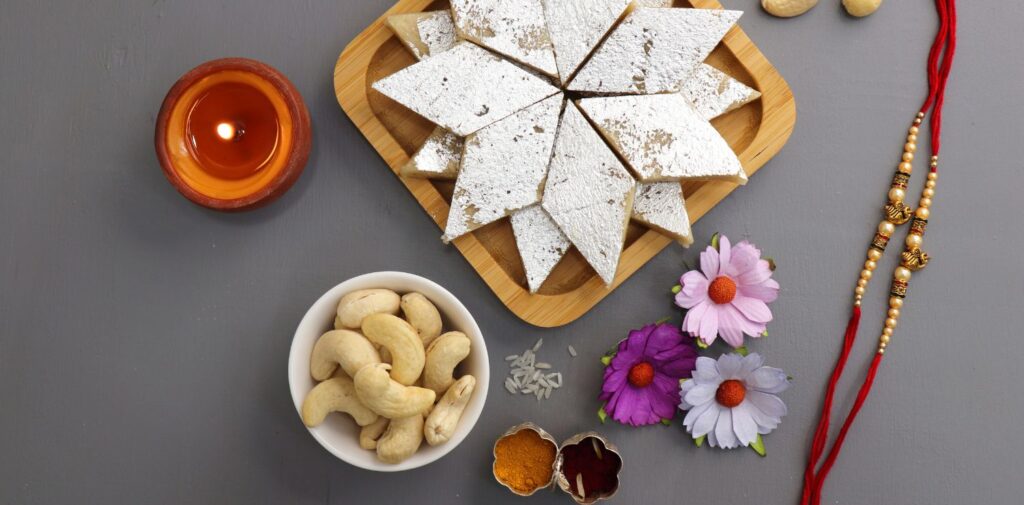
The Modern Relevance of Raksha Bandhan
Despite its deep-rooted traditions, Raksha Bandhan has continued to evolve, reflecting the changing dynamics of Indian society. Today, it is not uncommon for women to tie rakhis to each other as a pledge of friendship and solidarity. This gesture symbolizes the breaking down of gendered expectations and highlights the festival’s adaptability in addressing contemporary societal values.
In an increasingly globalized world, where many siblings live far apart, the festival has taken on new dimensions with the use of technology. Siblings send digital rakhis, exchange gifts online, and connect through video calls to partake in the festival’s rituals. The essence of Raksha Bandhan remains intact even as the methods of celebrating it change.
Raksha Bandhan also serves as a reminder of the importance of nurturing relationships, particularly in times when familial bonds are tested by physical distance or personal differences. The festival fosters a sense of togetherness and belonging, reminding people of their responsibilities towards their loved ones and their communities.
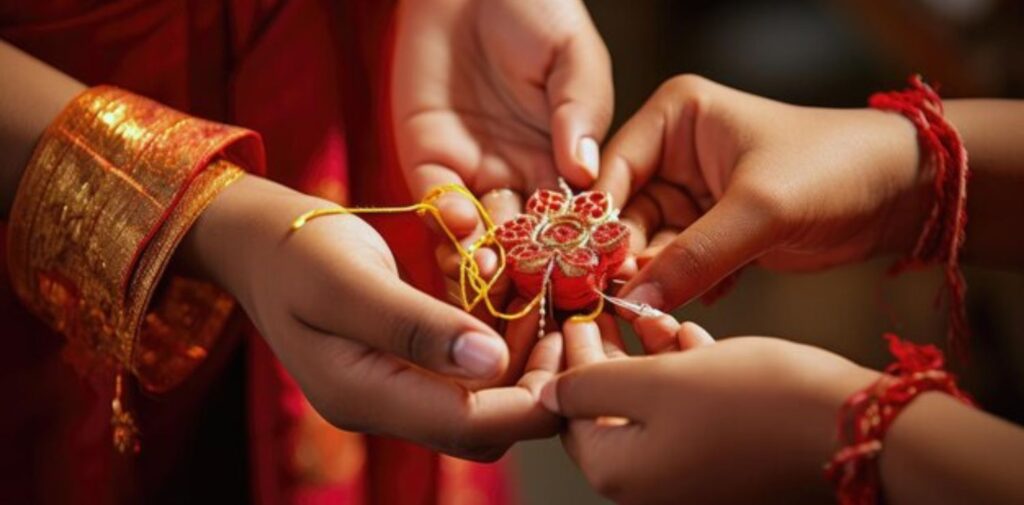
Conclusion
Raksha Bandhan is more than a simple ritual of tying a thread. It is a celebration of the enduring bond between siblings, the values of protection, love, and respect, and a reflection of the ever-evolving societal norms. Through its rich history, cultural significance, and beautiful traditions, Raksha Bandhan continues to inspire and bring people together. Whether through mythological tales, environmental initiatives, or modern reinterpretations, Raksha Bandhan remains a festival that fosters unity, care, and commitment in an ever-changing world.

